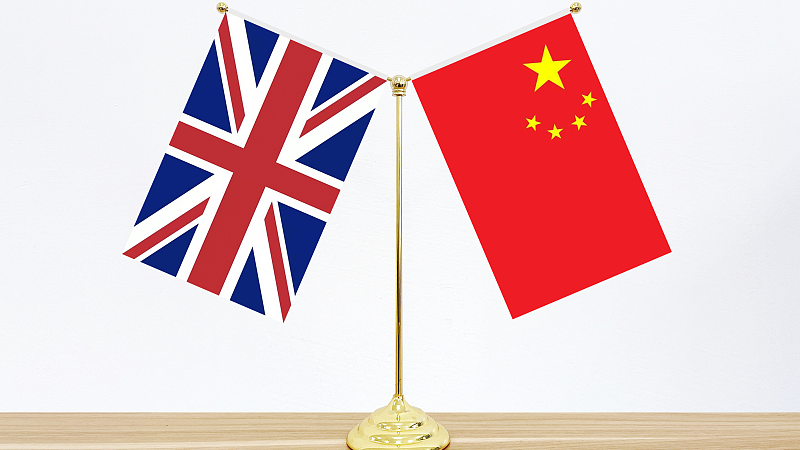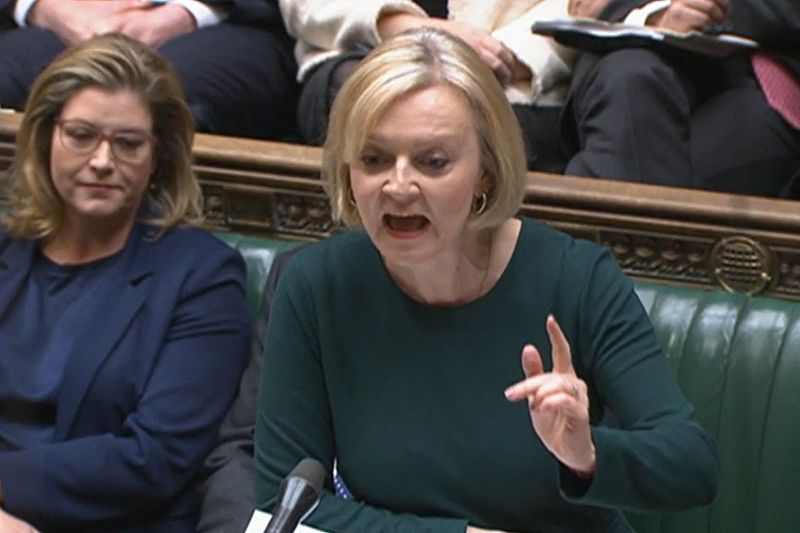
The national flags of the UK and China. /CFP
The national flags of the UK and China. /CFP
Editor's note: Hannan Hussain is a foreign affairs commentator and author. He is a Fulbright recipient at the University of Maryland and a former assistant researcher at the Islamabad Policy Research Institute. The article reflects the author's opinions and not necessarily the views of CGTN.
Despite challenges confronting the United Kingdom to build on the firm, long-term foundations of its China relationship, the two countries could still draw closer together in an equal-footed and mutually beneficial manner. Nonetheless, the prospective risks have been threatened since the Liz Truss administration appears set to formally designate China as a "threat" to Britain. She's opting for a major rewrite of the UK's defense and foreign policy. The update is expected within days and Downing Street confirms that the review is under way.
The hawkish China tilt is designed to cater to Truss' long-standing ambition: To court influential conservatives, and consolidate a fragile domestic base by placing the so-called China threat at front and center. But the unopposed move could work against UK interests. False threat perceptions about China challenge the credibility of London's own position that it values "mutually beneficial and effective relations" with Beijing, and its resolve to create conducive conditions for cooperation between the two countries.
Truss' use of the China threat designation as a policy imperative should not underestimate Beijing's resolve to stand by its sovereign and internal interests. The drive to counter China has become more influential in London. Make no mistake: none of this is reflective of the joint consensus between China and the UK in March 1972.
Attempts to distort Beijing's image as "the most serious long-term threat" to British values and their way of life is counterproductive. The anti-China lobbying demonstrates efforts to placate an increasingly discontented British population by showing off London's foreign policy muscle.
The British have concerns over the reversals of the disastrous budget planning, soaring inflation, and lackluster governance at home. Playing the China card only confirms that Truss' efforts at good governance are no longer a priority. According to The Guardian newspaper, Truss is seeking to "shore up support for her faltering premiership on her backbenches."

UK Prime Minister Liz Truss, speaks during in the House of Commons, October 12, 2022. /CFP
UK Prime Minister Liz Truss, speaks during in the House of Commons, October 12, 2022. /CFP
London fails to understand that fabricated anti-China constructs do not liberate the current administration's approach from that of the Boris Johnson period. Vast opportunities for China-UK bilateral trade have been further strained by the latter's diplomatic antagonism, and the British conservatives and intelligence want to see London's foreign policy approach tethered with Washington's anti-China stand. The lesson couldn't be clearer that the space for an autonomous UK foreign policy, as desired by many at the helm of affairs, is nowhere in reach.
Rather than reversing the Johnson administration's unwarranted "systemic competitor" designation, Truss remains adamant to understate the UK's case as a dependable partner in one of its most consequential foreign policy relations. A hardened China stance should be seen as a sign of panic for the newly elected government since conservative backbenchers – rather than British people – are seen as powerful players to approve Truss' faltering leadership.
"It is time we stopped messing around and recognized that China poses a threat to the way we live our lives, and it is time now to treat them in the same way we treat Russia," said Iain Duncan Smith, supporter of the stance and a campaigner for chair of the UK's foreign affairs select committee. Accordingly, the underlying politics driving UK's hawkish China would likely backfire.
China has signaled time and again that the key to enduring ties is equal treatment, departure from a "dead-end" policy, and greater China-UK support for meaningful dialogue. By preparing the ground for an unwarranted "threat" designation of China, Truss complicates trust-building prospects for the long-standing China-UK relations, heightening her country's exposure to adverse bilateral risks.
(If you want to contribute and have specific expertise, please contact us at opinions@cgtn.com. Follow @thouse_opinions on Twitter to discover the latest commentaries on CGTN Opinion Section.)